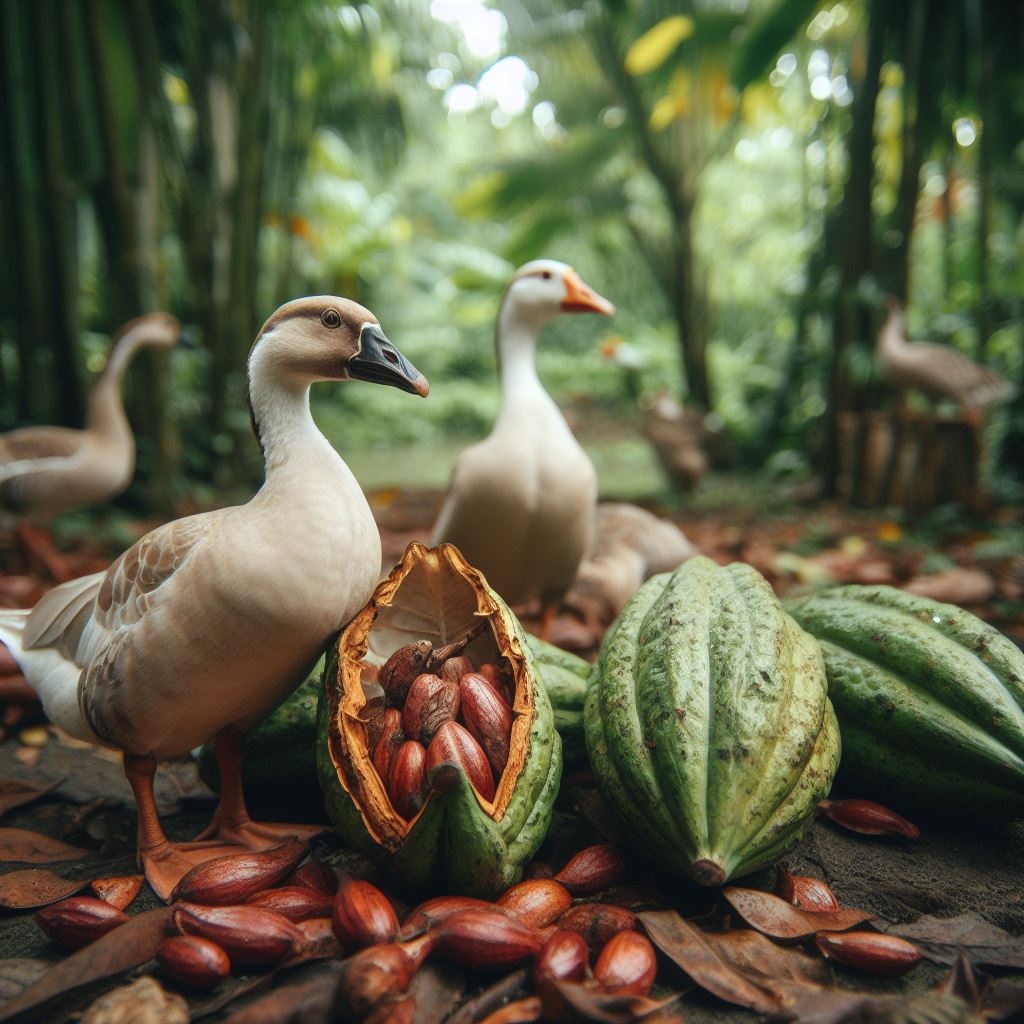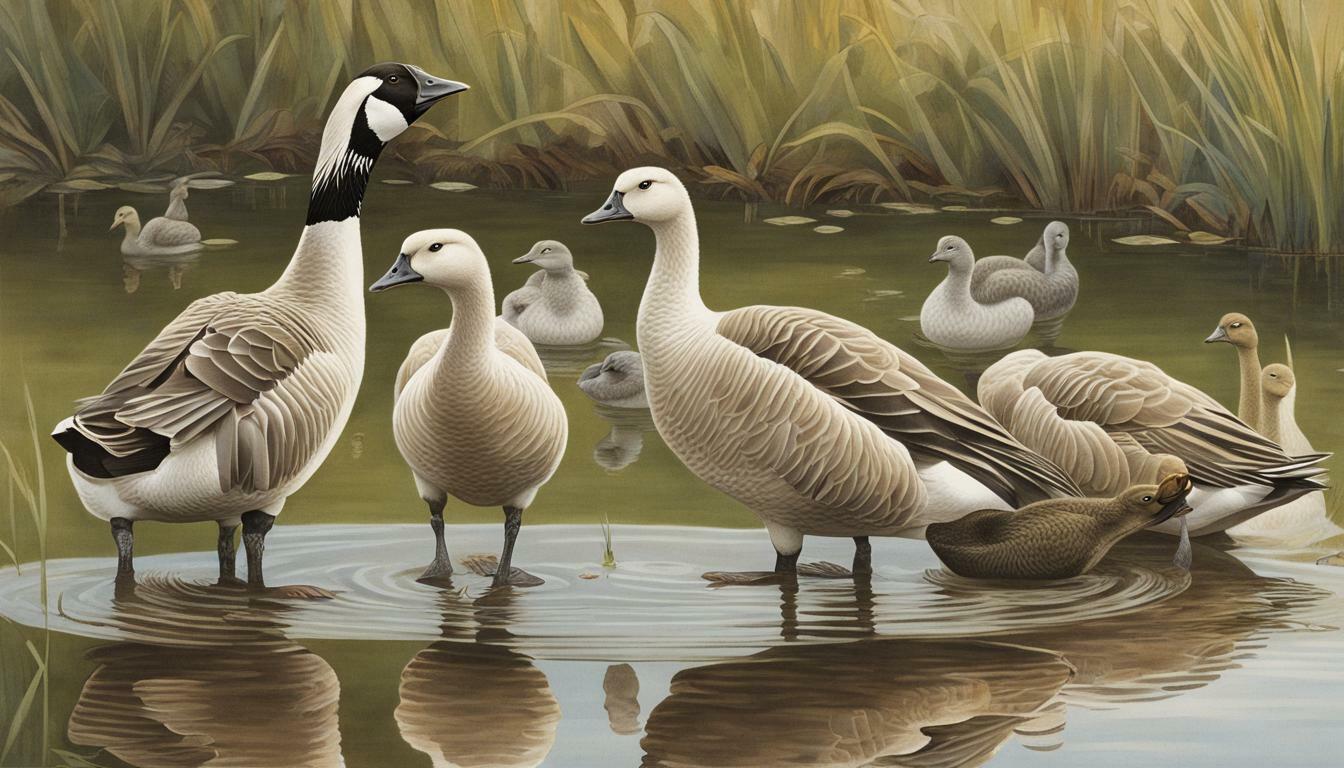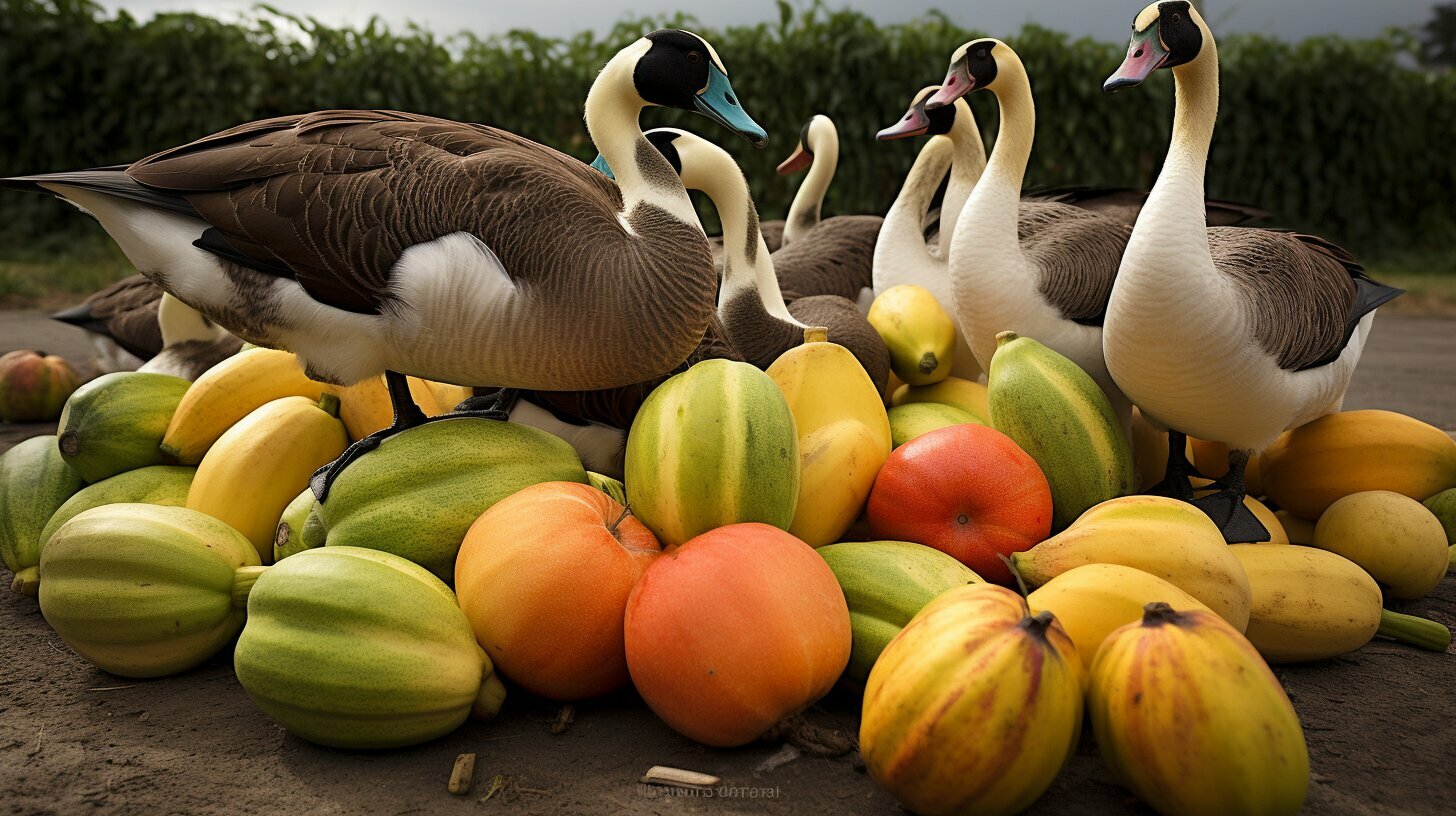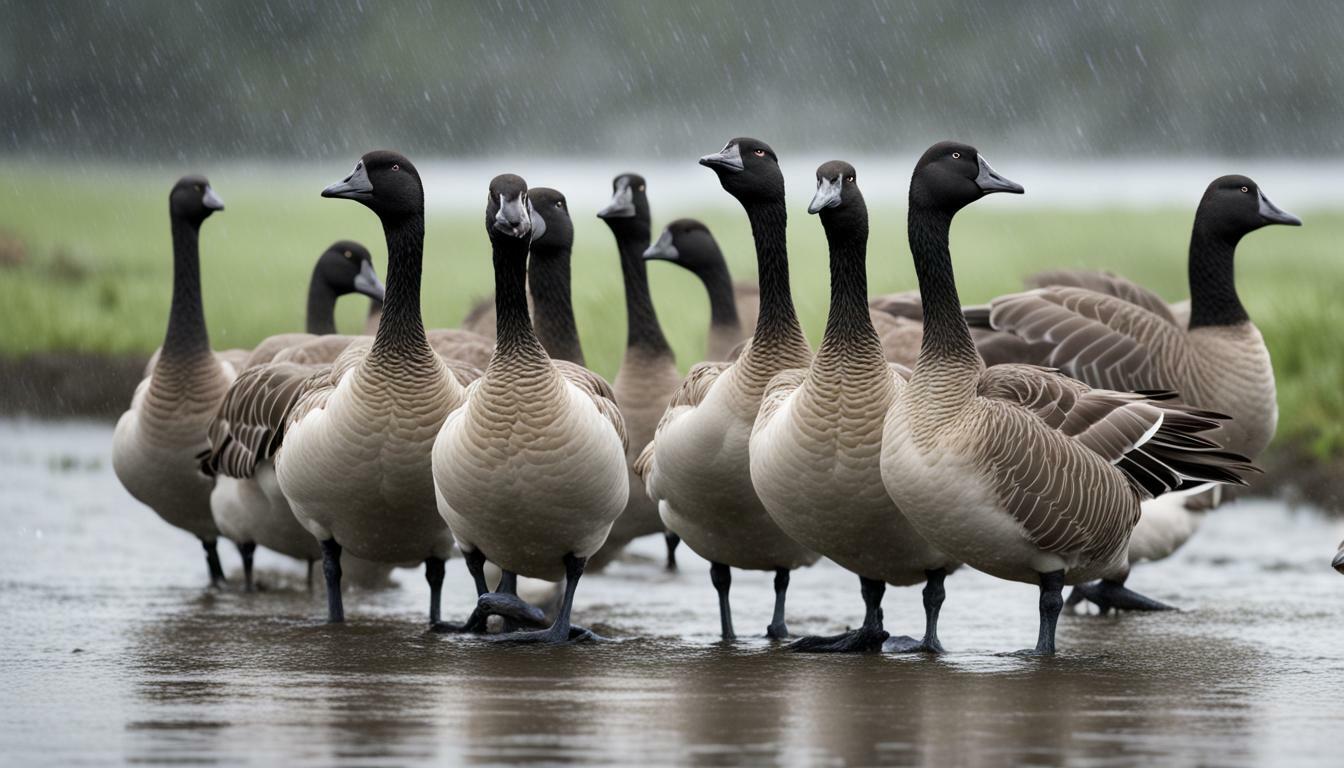Can Geese Eat Raisins? Benefits, Risks, and Feeding Tips

Table of content:
- Can Geese Have Raisins?
- Are Raisins Bad for Geese?
- Should You Feed Geese Raisins?
- Do Geese Like Raisins?
- What Kind of Human Food Can Geese Eat?
- What Foods Are Toxic to Geese?
- Where Do Geese Like to Eat?
- How Much Food Do Geese Need to Eat?
- What Plants Are Poisonous to Geese?
- How Much Food Do Canadian Geese Need?
- Frequently Asked Questions
- Conclusion
Raisins are dried grapes that make a popular human snack. But can geese eat raisins too? This common question often pops up for people who enjoy feeding geese. As it turns out, geese can safely eat raisins in moderation. However, some risks are associated with feeding raisins to geese.
Key takeaways:
- Raisins are generally safe for geese to eat in moderation as an occasional treat. However, raisins do pose some potential choking hazards and toxicity risks if overfed to geese.
- Geese can eat a variety of human foods like seeds, fruits, veggies, greens, and grains. However, some foods like chocolate, alcohol, caffeine are toxic to geese.
- Geese forage on seeds, aquatic plants, and grasses. They need a balanced diet with protein, carbs, fiber, vitamins, and minerals.
- When feeding geese, avoid large quantities of raisins or other sugary foods that can cause health issues. Stick to geese’s natural diet and supplement with small amounts of safe human foods.
- Overfeeding geese can lead to malnutrition, obesity, and environmental issues. Use moderation when feeding geese treats like raisins.
This article will cover whether geese can eat raisins, the benefits and dangers, feeding tips, geese diet and nutrition facts.
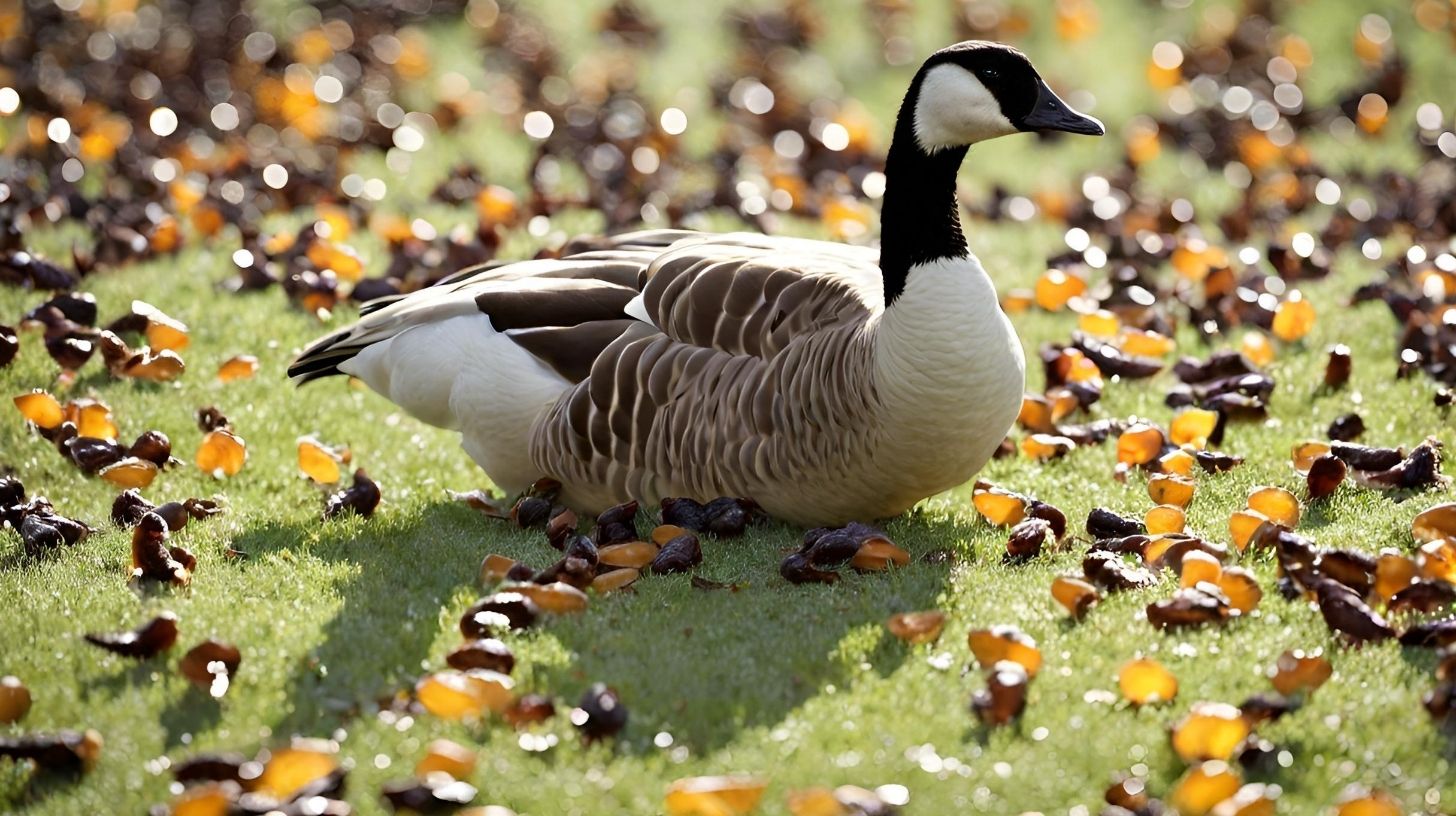 Can Geese Have Raisins?
Can Geese Have Raisins?
Geese can eat raisins in small quantities as an occasional treat. Raisins are not toxic to geese. In fact, wild geese enjoy eating dried fruits like raisins when they come across them. However, raisins do not provide complete nutrition for geese. They lack the protein, vitamins, and minerals that geese need. Raisins are also high in natural sugar, which can cause weight gain if overfed. Plus, the dried fruit poses a choking risk and contains toxic compounds in the seeds. For these reasons, raisins should only be fed to geese sparingly.
Benefits of Feeding Geese Raisins
Here are some potential benefits of raisins for geese:
- Additional energy: Raisins provide a quick energy boost from their natural sugars. This can help geese thrive, especially during migration or winter.
- Prebiotics: Raisins contain prebiotics that support gut health and digestion in geese.
- Antioxidants: Raisins are high in antioxidants that can boost the immune system.
- Occasional treat: Small amounts of raisins can serve as a tasty, appealing treat for geese.
Dangers of Feeding Geese Too Many Raisins
Feeding too many raisins to geese comes with these risks:
- Choking hazard: Raisins can get lodged in geese’s throats due to their small, dry nature.
- Obesity: The sugar in raisins can cause weight gain and associated health problems if overfed.
- Nutritional imbalance: Raisins lack complete nutrition, so relying on them too much can lead to deficiencies.
- Toxicity: Raisin seeds contain tiny amounts of toxic compounds that can be harmful in large quantities.
- Crop impaction: Massively overfeeding raisins may compact a goose’s crop, obstructing digestion.
To avoid these dangers, raisins should be fed sparingly as part of a balanced diet. No more than a few raisins 2-3 times per week is recommended.
Are Raisins Bad for Geese?
Are raisins bad for geese? Not necessarily, when fed properly. In fact, wild geese feed on grapes and raisins when available. The key is moderation. Feeding large quantities of raisins regularly can cause choking, obesity, nutritional issues, and other problems. But occasional, small servings of raisins are generally safe for geese. Raisins do contain beneficial nutrients and prebiotics that support geese health. Overall, raisins aren’t “bad” but must be fed carefully and in combination with proper goose nutrition.
Healthy Human Foods for Geese
In addition to raisins, geese can eat a variety of healthy human foods, such as:
- Seeds and grains (peas, rice, wheat, oats, barley)
- Fruits (grapes, berries, melon)
- Vegetables (sweet potatoes, leafy greens, squash)
- Baked goods (whole grain breads)
These items mirror the geese’s natural diet and provide balanced nutrition. Offering a variety promotes good health.
Unsafe Human Foods for Geese
Some human foods should be avoided for geese, including:
- Chocolate
- Caffeine (coffee, tea, soda)
- Alcohol
- Raw beans
- Dairy
- Fatty foods
These items can cause digestive upset or toxicity. While raisins have some risks, they are much safer than chocolate, caffeine or other poisonous substances. When in doubt, check if a food is goose-safe.
Should You Feed Geese Raisins?
Should you feed geese raisins? In moderation, yes, but raisins should not be a dietary staple. Here are some tips for safely feeding geese raisins:
- Limit raisins to a few times per week at most
- Only feed 1-2 raisins per goose at a time
- Avoid throwing handfuls of loose raisins, as geese may fight over them
- Mix raisins into a balanced meal of birdseed, grains, veggies
- Monitor geese closely while feeding raisins
- Stop feeding raisins if signs of choking, aggression or obesity appear
With proper precautions, it’s fine to offer geese a few raisins occasionally as a supplemental treat. But raisins should never outweigh natural goose foods in their diet.
Health Risks of Overfeeding Raisins to Geese
Feeding too many raisins can jeopardize goose health:
- Obesity: Too much sugar can lead to weight gain and associated issues like joint pain or heart disease.
- Malnutrition: Relying heavily on raisins could lead to vitamin/mineral deficiencies.
- Choking: Excess raisins raise the risk of crop impaction or blocked airways.
- Toxicity: Eating many raisins means consuming more toxic compounds found in the seeds.
- Digestive issues: Too many raisins may impact goose digestion and cause diarrhea.
- Behavior changes: Overfed geese often become more aggressive about begging for food.
To keep geese healthy, raisins should be limited to occasional small treats. A diverse, balanced diet is vital.
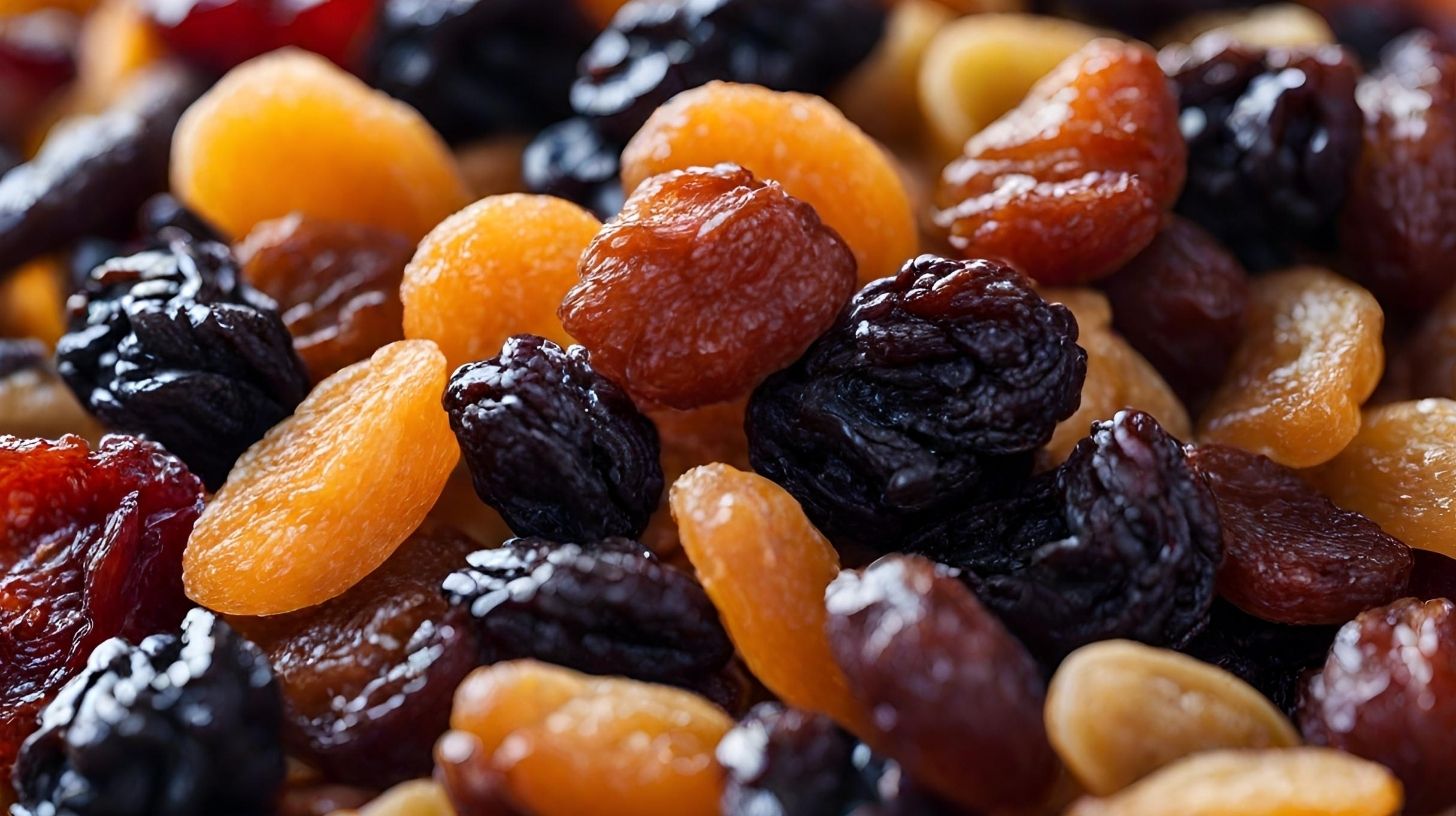 Do Geese Like Raisins?
Do Geese Like Raisins?
Do geese like raisins? Yes, most geese find raisins to be a tasty treat! Here’s why geese are naturally drawn to raisins:
- Sweet taste: Geese have a natural taste for sweet foods, which raisins provide.
- Small size: Bite-sized raisins are easy for geese to pick up and swallow.
- Seed-eating diet: Geese eat a seed-heavy diet, so they recognize raisins as food.
- Foraging behavior: Geese scavenge for food, including dried fruits like raisins.
- Energy boost: Raisins offer quick energy from natural sugars that geese need.
- Familiarity: Geese who frequently receive raisins develop a taste and preference for them.
Satisfying geese’s sweet tooth and foraging instincts with raisins occasionally is fine. But restrain from overfeeding them to prevent issues.
What Kind of Human Food Can Geese Eat?
What kind of human food can geese eat? Geese can safely eat a variety of people foods, such as:
Seeds/Grains: wheat, rice, oats, barley, corn, peas, birdseed
Fruits: grapes, berries, melon, bananas
Vegetables: leafy greens, sweet potatoes, squash, peas
Baked Goods: whole grain breads and crackers
These foods provide carbohydrates, fiber, vitamins, minerals, and some protein to balance out geese’s diet. Offer a diverse mix of goose-safe people foods.
Key Nutrients Geese Need
Geese need certain nutrients from their diet to thrive:
- Protein for muscle maintenance and growth
- Carbohydrates for energy
- Healthy Fats for absorption of fat-soluble vitamins
- Fiber for digestion
- Vitamins & Minerals for immune function and metabolism
- Water for hydration and digestion
Quality human foods can supplement a goose’s natural diet to ensure they get adequate nutrition.
| Food Group | Health Benefits |
|---|---|
| Seeds & Grains | Energy, protein |
| Fruits | Antioxidants, vitamins |
| Veggies | Vitamins, minerals, fiber |
| Baked Goods | Energy, fiber |
Unsafe Human Foods for Geese
Avoid feeding geese these unhealthy people foods:
- Chocolate
- Raw beans
- Caffeine
- Alcohol
- Dairy
- Fatty foods
- Salt-heavy foods
These items can seriously harm geese. When in doubt, check if a food is goose-safe before feeding.
What Foods Are Toxic to Geese?
Certain foods are toxic to geese and should be avoided. Here are some common foods that are toxic to geese:
- Chocolate: Contains toxic theobromine.
- Caffeine: Found in coffee, tea, soda, and energy drinks. Very toxic to geese.
- Alcohol: Fermented drinks are highly dangerous. Can cause liver damage or death.
- Avocado: The skin, pit, and leaves contain persin, which is toxic to waterfowl.
- Raw beans: Contain lectin phytohemagglutinin, which is poisonous if uncooked.
- Apple seeds: Seeds contain trace amounts of cyanide compounds.
- Dried beans: Uncooked kidney or navy beans are toxic. Must be thoroughly cooked.
- Moldy foods: Mold produces mycotoxins that can harm geese.
Avoid these dangerous foods at all costs when feeding geese. Also research before offering any questionable or unknown food item.
Where Do Geese Like to Eat?
In the wild, geese prefer to eat in wetland areas that provide:
- Open access to water sources for drinking
- Muddy shorelines where they can forage
- Wide views to watch for predators as they graze
- Shallow water to dabble and reach underwater plants
- Secluded areas to nest and raise goslings
Geese also need resting spots like small islands where they can digest meals safely. These ideal goose feeding habitats supply all their dietary needs naturally.
Best Places to Feed Geese
When feeding geese, choose locations that mimic their natural feeding spaces. Ideal spots include:
- Ponds, lakes, reservoirs with bare shorelines
- Large grassy areas away from roads or crowds
- Open fields, golf courses, parks with water access
- Wetlands, marshes, or streams with muddy banks
- Large backyards adjacent to geese’s migration paths
Feeding geese in their preferred environments reduces stress. Make sure permission is granted before feeding geese on private property or nature preserves.
Avoid Feeding Geese in Public Places
Refrain from feeding geese in public spaces like:
- Sidewalks or parking lots
- Roads or highways
- Drainage ditches by roads
- Small decorative ponds
- Near footpaths or trails
- Beaches or shorelines with heavy foot traffic
These areas can be dangerous for geese and increase nuisance issues. Feed geese only in suitable habitats.
How Much Food Do Geese Need to Eat?
On average, geese need to eat about 6-8 oz or 170-227 grams of food per day. But food needs vary:
- Adult geese eat about 5-7 oz or 140-200 grams daily
- Goslings require 2-3 oz or 60-85 grams per day
- Migrating geese need extra calories, up to 12 oz or 340 grams
The exact amount depends on the goose’s size, age, activity level, and time of year. Make sure geese get diverse foods to fulfill all nutritional requirements.
Signs Geese Are Not Getting Enough Food
Underfed geese may display:
- Increased aggression over food
- Attempting to eat non-food items
- Visible weight loss
- Dull, brittle feathers
- Fatigue or lethargy
- Weakness flying or swimming
If geese show these signs, increase daily food amounts and calorie counts. Provide extra grains, seeds, fruits, veggies, greens, and protein sources.
Signs Geese Are Overfed
Overfeeding can lead to obesity, evident by:
- Weight gain, especially around the abdomen
- Waddling instead of smooth walking
- Reluctance or inability to fly
- Heavy panting
- Trouble floating on water
Scale back on treats and reduce daily feeding amounts for overweight geese. Focus on lower calorie, high fiber natural foods.
What Plants Are Poisonous to Geese?
Geese forage on various plants. But some common garden plants are poisonous to geese, such as:
- Rhododendrons & Azaleas: Contain toxic grayanotoxins.
- Foxgloves: The leaves and flowers contain the toxin digitalis.
- Yew shrubs: The needles and seeds contain poisonous taxine alkaloids.
- Oleander: All parts are toxic, containing cardiac glycosides.
- Nightshade family: Tomatoes, potatoes, and peppers belong to the Solanaceae family. The stems and leaves are poisonous.
- Lily of the valley: The leaves, stems, and flowers contain cardioactive glycosides.
Avoid feeding geese any vegetation unless you’re certain it’s goose-safe. Remove toxic plants from areas near geese habitats when possible.
How Much Food Do Canadian Geese Need?
Canada geese require similar amounts of food as other geese species. Their specific daily diet depends on age:
- Adult Canada geese eat 5-7 ounces or 140-200 grams of food.
- Goslings need around 2-3 ounces or 60-85 grams.
- Nesting female Canada geese consume extra calories, up to 9 ounces or 255 grams per day.
Canada geese enjoy mixed greens, aquatic plants, and grains. Adjust food based on activity levels. Offer more during molting, migration, chick rearing or winter.
Sample Daily Meal for Canada Geese
Here is an example nutritious daily meal plan for Canada geese:
- 1/2 cup game bird feed
- 1/4 cup mixed vegetables
- 1/4 cup chopped kale or lettuce greens
- 2 tbsp seeds or dried corn
- Unlimited fresh water
This provides a balanced diet. Never rely solely on bread or crackers, which lack proper nutrition.
Potential Signs of Malnourishment
Underfed Canada geese may show:
- Increased aggression over food
- Eating non-food items
- Visible keel bone or loss of mass
- Disheveled, ratty-looking feathers
- Weakness flying or walking
Boost food amounts and nutritional content if geese display these issues.
Frequently Asked Questions
Are raisins healthy for geese?
Raisins are fairly healthy for geese in moderation but lack complete nutrition. Small amounts 2-3 times per week make a fine supplemental treat. But geese shouldn’t rely on raisins as a main food source.
Can I feed geese raisins daily?
It’s best not to feed geese raisins daily, as they are high in sugar and may pose health risks if overfed. Limit raisins to a few times per week at most.
Is bread bad for geese?
Yes, bread is not recommended as a primary food for geese. While geese will readily eat bread, it lacks proper protein, vitamins, and minerals. Geese that fill up on empty calories from bread may suffer from malnourishment.
What’s the best food to feed geese?
The best foods for geese include a variety of seeds, grains, aquatic plants, grasses, vegetables, fruits, and greens. Offering a diverse, balanced diet supports overall health.
How often should you feed geese?
Adult geese only need to be fed 1-2 times daily. Feed goslings and migrating geese 3-4 smaller meals throughout the day. Avoid leaving food out overnight.
Conclusion
Can geese eat raisins? In moderation, yes, raisins make a suitable supplemental treat. But geese should not rely heavily on raisins for nutrition. While raisins offer some benefits, they also pose choking risks and toxicity concerns if overfed. Use raisins sparingly and focus on providing geese a varied, balanced diet. Limit high-sugar foods like raisins, and always separate geese during treat-feeding to prevent aggression. With proper care and feeding, the occasional raisin can be part of a healthy diet for geese.
Welcome. I’m Adreena Shanum, the proud owner of this website, and I am incredibly passionate about animals, especially poultry. I founded adreenapets.com as a labor of love, stemming from my desire to share my knowledge and experiences with poultry enthusiasts worldwide.

